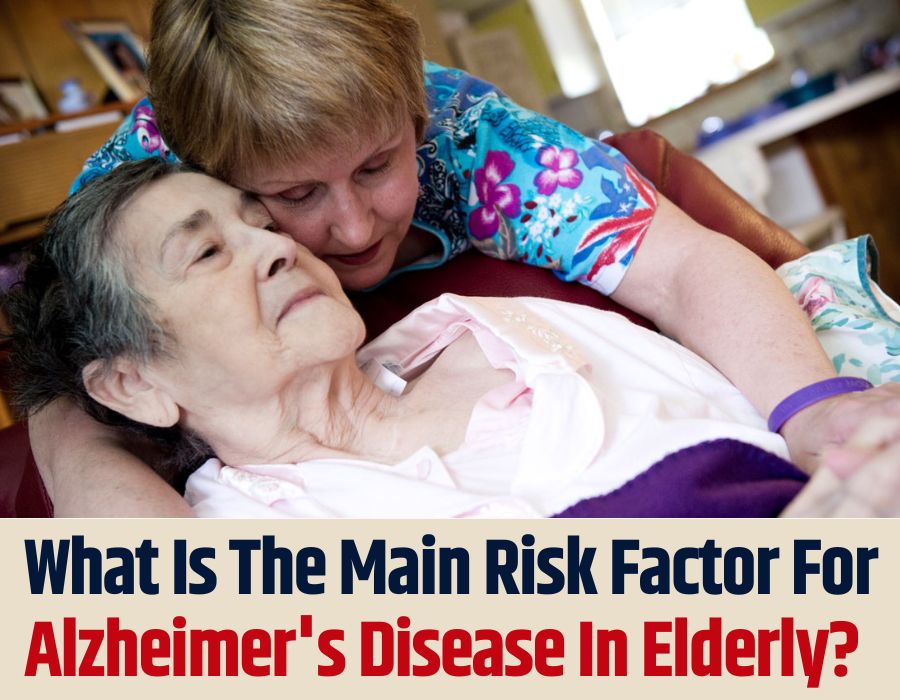Alzheimer’s disease, a progressive neurological disorder, poses a significant challenge for elderly individuals and their caregivers. As we delve deeper into understanding this condition, it becomes crucial to identify the main risk factors associated with it. Among various factors contributing to the onset and progression of Alzheimer’s disease, one that stands out prominently is age. This article provides an overview of why age is considered the primary risk factor for Alzheimer’s disease in the elderly, as well as strategies for Alzheimer’s patient care at home.
Age: The Foremost Risk Factor for Alzheimer’s Disease Age is the single most significant risk factor for Alzheimer’s disease. Studies have consistently shown that the likelihood of developing Alzheimer’s increases with advancing age. While Alzheimer’s can affect individuals in their 40s and 50s, it predominantly manifests in older adults, particularly those aged 65 and above. The risk doubles approximately every five years after the age of 65, making age the strongest predictor of Alzheimer’s disease.
Understanding the Link Between Age and Alzheimer’s Several factors contribute to the increased susceptibility to Alzheimer’s disease in older adults:
Accumulation of Brain Changes: With age, the brain undergoes natural structural and functional changes, including the accumulation of abnormal proteins such as beta-amyloid plaques and tau tangles. These changes disrupt communication between brain cells, leading to cognitive decline characteristic of Alzheimer’s disease.
Reduced Neuroplasticity: Neuroplasticity, the brain’s ability to reorganize and form new neural connections, declines with age. This reduced plasticity impairs the brain’s ability to compensate for damage or disease, making older individuals more vulnerable to neurodegenerative conditions like Alzheimer’s.
Increased Oxidative Stress and Inflammation: Aging is associated with heightened oxidative stress and chronic inflammation, both of which contribute to neuronal damage and cognitive impairment. These processes play a significant role in the development and progression of Alzheimer’s disease.
Genetic Predisposition: While age-related changes in the brain are universal, genetic factors can modulate an individual’s susceptibility to Alzheimer’s disease. Certain genetic variations, such as the apolipoprotein E (APOE) gene, influence the risk and age of onset of Alzheimer’s.
Care Givers Pune: Alzheimer’s Patient Care at Home
Meeting the Unique Needs Caring for a loved one with Alzheimer’s disease at home presents both challenges and opportunities. Here are some essential tips for providing quality care:
Create a Safe Environment: Modify the home environment to reduce hazards and ensure safety. Install handrails, remove tripping hazards, and use locks on cabinets containing potentially harmful substances.
Establish Routines: Consistency and routine can help individuals with Alzheimer’s feel more secure and oriented. Maintain regular meal times, bedtime routines, and daily activities to provide structure and familiarity.
Effective Communication: Use simple language, speak slowly, and maintain eye contact when communicating with someone with Alzheimer’s. Be patient and attentive, allowing them ample time to process information and respond.
Encourage Independence: While it’s essential to provide assistance when needed, encourage independence in daily tasks to preserve the individual’s sense of dignity and autonomy.
Seek Support: Caregiving can be demanding, both physically and emotionally. Don’t hesitate to seek support from family members, friends, or professional caregivers. Joining a support group can also provide valuable guidance and encouragement.
Conclusion
Age remains the primary risk factor for Alzheimer’s disease in the elderly, highlighting the importance of proactive measures for early detection and intervention. While age-related changes in the brain are inevitable, understanding the factors contributing to Alzheimer’s susceptibility can inform strategies for prevention and care. By implementing appropriate interventions and providing compassionate support, We Care Givers Pune can enhance the quality of life for individuals living with Alzheimer’s disease.






